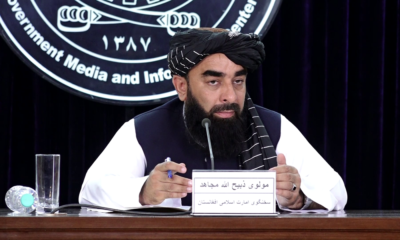Latest News
Denial of girls’ right to education in Afghanistan is ‘intolerable’: NRC chief
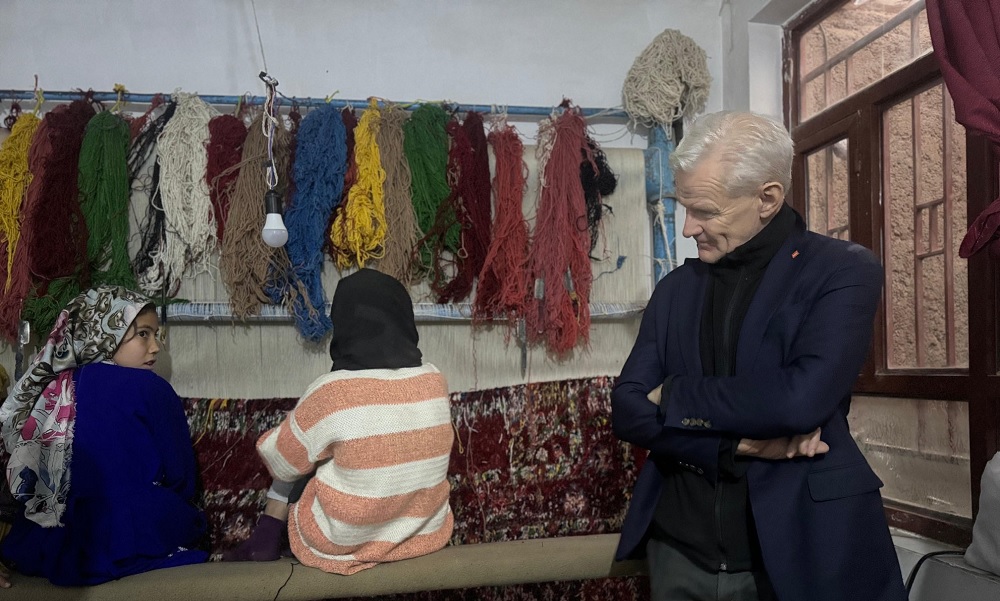
The head of the Norwegian Refugee Council, Jan Egeland, on Saturday criticized the restrictions on girls and women’s education in Afghanistan, saying that it is “intolerable.”
After visiting a carpet weaving center in Herat province, Egeland lamented that girls who were deprived of education beyond primary school are now forced to weave carpets.
“It is an intolerable denial of fundamental human rights,” he said on X.
Egeland also expressed concern over the humanitarian crisis in Afghanistan, saying that the world has ignored the crisis.
He noted that 22 million people in Afghanistan need humanitarian assistance and with that, Pakistan has sent back 800,000 refugees and Iran plans to deport two million.
Egeland also said that donors are surprisingly slow to fund projects supporting Afghan female entrepreneurs.
Restrictions on female education in Afghanistan have been repeatedly criticized by foreign governments and even some in the Islamic Emirate.
Political deputy of the Ministry of Foreign Affairs, Sher Mohammad Abbas Stanikzai, recently said that the restrictions are not according to Sharia, as it is claimed.
“I ask the leaders of the Emirate to open the door of knowledge,” Stanikzai said at a ceremony in Khost province. “There is no excuse for this, nor should there be one. In the time of the Prophet (pbuh), the door of knowledge was open to men and women. Half of the knowledge is narrated from Bibi Ayesha (RA). Similarly, there were prophet’s companions who taught other companions. There were blessed women who were teachers of great mujtahids. They acquired knowledge from them. If women were in trouble or men were in trouble, they would ask Bibi Ayesha. That’s because she was a scholar.”
“Today we are doing injustice to 20 million of the 40 million people. Will we not rise on the Day of Judgment paralyzed and having denied all rights? The right of inheritance is not given to girls. The right to choose a husband is not given. We get girls married in Baad practice. We don’t allow education. We don’t allow them to go to the mosque. The doors of the universities and schools are closed. We don’t even let them go to madrassa. Are we acting in accordance with the Sharia?
“Another issue is that the whole world has a problem with us on this issue. They criticize us about it. But the path we have taken is a matter of our own liking, not the Sharia.”
Baad is a method of settlement and compensation whereby a female from a criminal’s family is given to the victim’s family as a servant or a bride.
Latest News
IEA clarifies annual payout for victims of Afghanistan’s 20-year war
Mujahid said that last year, 12.5 billion afghanis was budgeted and distributed to support these people.
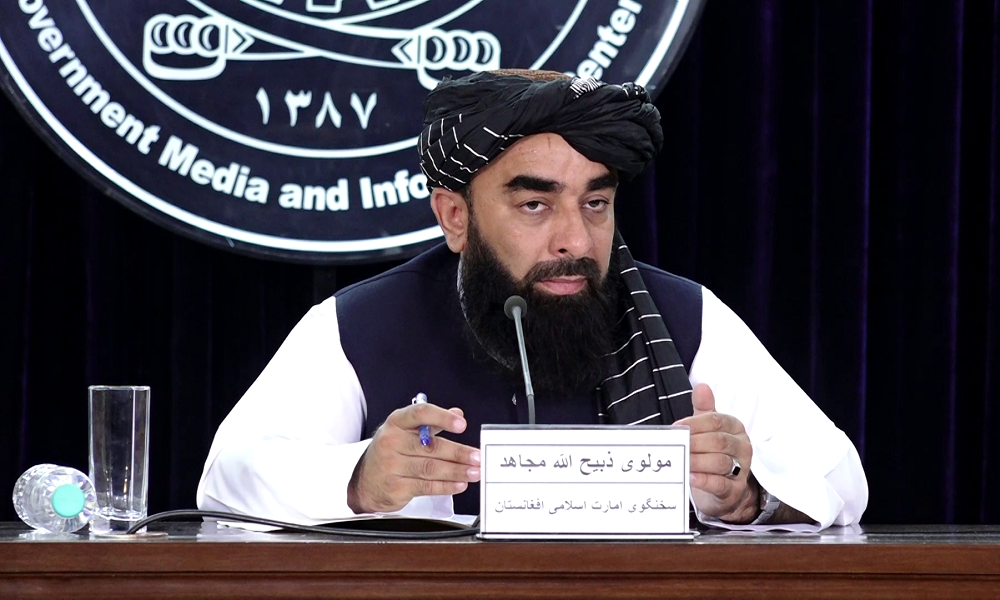
The Islamic Emirate of Afghanistan’s spokesman Zabihullah Mujahid has clarified reports of an annual payout for families of war victims saying the money is for the families of mostly all victims who died during the war with the United States.
Mujahid said the annual payout of 12.5 billion afghanis (AFN) was not only for the families of deceased IEA fighters but also for the families of deceased security force members from the former government, as well as orphans and widows of civilians killed, and disabled people.
Mujahid said that last year, 12.5 billion afghanis was budgeted and distributed to support these people.
This comes after a number of media outlets published reports over the past two days of an interview with Zabihullah Mujahid. The reports stated that 12 billion afghanis has been allocated annually to the families of the Islamic Emirate’s fallen soldiers, who died during the 20-year war.
International Sports
IPL 2025: Sunday’s KKR vs LSG match pushed out to Tuesday
Sunday will now be a single-header match day, opposed to the usual double-header schedule.

The Board of Control for Cricket in India (BBCI) announced Wednesday that Match 19 of the Indian Premier League (IPL) between Kolkata Knight Riders (KKR) and Lucknow Super Giants (LSG) has been rescheduled and will be played on Tuesday, April 8 at 2:30 pm Kabul time.
The match was originally scheduled to take place this Sunday, April 6.
Sunday will now be a single-header match day, opposed to the usual double-header schedule. Sunrisers Hyderabad will play Gujarat Titans at 6 pm Kabul time as originally scheduled.
However, two matches will be played on Tuesday, April 8. First up will be KKR vs LSG, followed by the Punjab Kings vs Chennai Super Kings.
Wednesday’s match
Wednesday, April 2, saw Punjab Kings cruise to an 8-wicket win over Lucknow Super Giants after a dominant all-round performance.
A disciplined bowling effort restricted LSG to 171/7 at home before PBKS chased it down in style.
Player-of-the-Match Prabhsimran Singh (69 off 34), skipper Shreyas Iyer (52* off 30), and Nehal Wadhera (43* off 25) powered the visitors to a flawless finish, keeping them unbeaten in the league.
This convincing win propelled PBKS to second place in the points table, boosting their confidence for the games ahead.
Thursday’s match
Today, Thursday April 3, will see Kolkata Knight Riders take on Sunrisers Hyderabad at Eden Gardens in Kolkata.
The match will start at 6 pm Kabul time. Once again, Ariana Television will broadcast this thrilling event live across Afghanistan.
Latest News
Panjshir to Kabul water conduit project ‘waiting for budget approval’
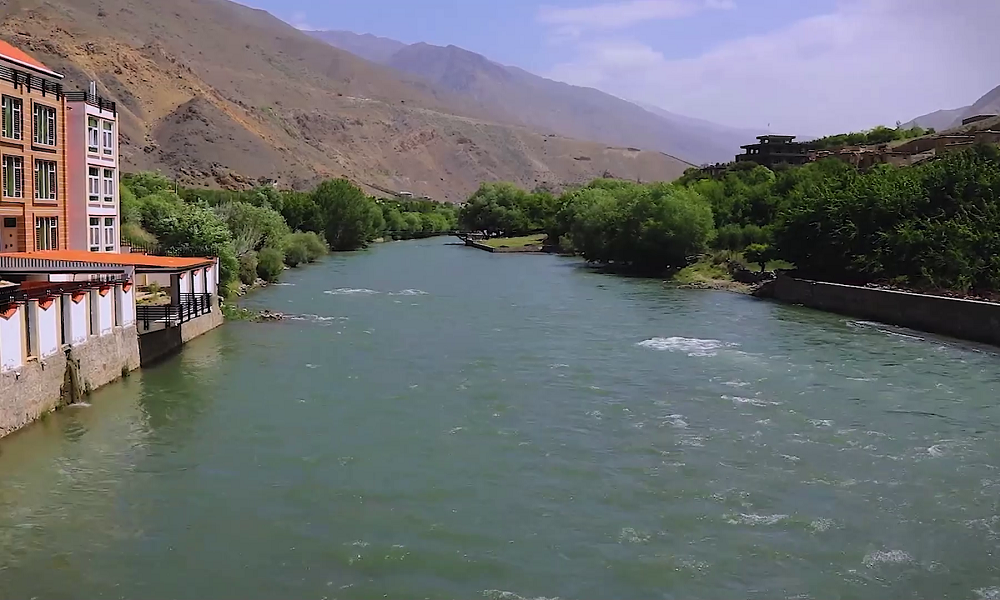
Afghanistan’s Ministry of Energy and Water is waiting for budget approval on the much-needed Panjshir to Kabul water conduit project – which, once completed, will alleviate the severe water shortage crisis in the capital.
Matiullah Abid, spokesperson for the Ministry of Energy and Water, confirmed the initial phase of reviewing and planning of the project is complete and construction work will start as soon as the budget has been approved.
Abid said the aim of the project is to help reduce water shortage issues in Kabul..
“The survey, design, and technical studies of the Panjshir water transfer project have been completed by the Ministry of Energy and Water, and the project [budget] has been sent to the leadership of the Islamic Emirate for approval,” he said.
“This project will commence once it is approved and the budget is available.”
The water conduit project will cover a distance of over 200 kms starting in Bazarak in Panjshir and ending in Tarakhail in Kabul.
Residents of Kabul have welcomed the plan and said once complete the additional water will help alleviate the drinking water crisis.
Experts meanwhile believe that this project could help Kabul’s groundwater levels to improve.
“I believe that the Panjshir water transfer project will help replenish underground water sources once again, and the people will have access to clean and healthy water. Additionally, with the transfer of Panjshir water, the agricultural lands around Kabul will also be managed with water, which, in turn, will create job opportunities for the people,” said Abdul Nasir Reshtia, an economic expert.
The plan to transfer water from the Panjshir River to Kabul was designed in 2012. In the 2020 budget of under the previous government, around $5 million was allocated for the annual transfer of 100 million cubic meters of Panjshir River water to Kabul.
The project was expected to be completed by 2023 but never got off the ground until the Islamic Emirate takeover.
-

 World4 days ago
World4 days agoMyanmar quake death toll hits 1,700 as aid scramble intensifies
-

 Sport4 days ago
Sport4 days agoIPL 2025: Gujarat Titans beat Mumbai Indians by 36 runs
-
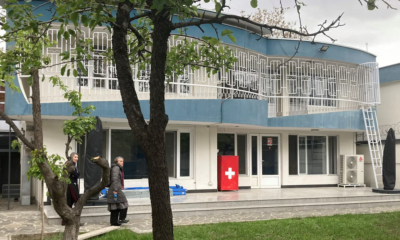
 Latest News3 days ago
Latest News3 days agoSwitzerland re-establishes presence in Kabul with humanitarian office
-
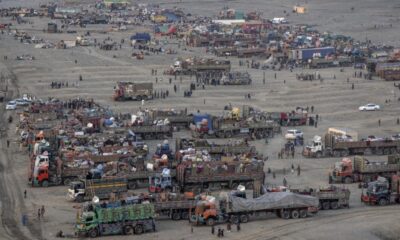
 Latest News3 days ago
Latest News3 days agoPakistan plans to expel 3 million Afghan refugees this year
-

 World3 days ago
World3 days agoSouth Korea, China, Japan seek regional trade amid Trump tariffs
-
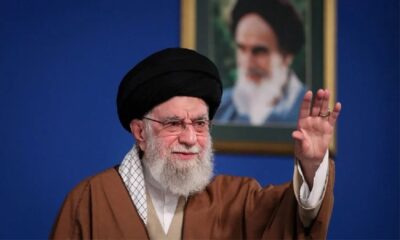
 Regional3 days ago
Regional3 days agoIran’s Khamenei warns of ‘strong’ response if US attacks
-
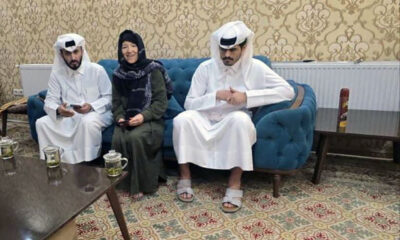
 Latest News4 days ago
Latest News4 days agoUS citizen detained in Afghanistan has been freed
-

 Latest News2 days ago
Latest News2 days agoUS won’t rest until all Americans detained in Afghanistan brought home: Rubio






